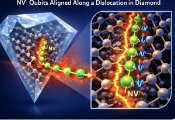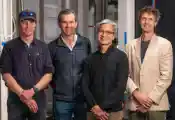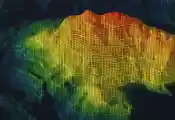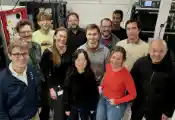A Quantum Leap in Creating Exotic Materials
July 26, 2024 -- Strong interactions between subatomic particles like electrons occur when they are at a specific energy level known as the van Hove singularity. These interactions give rise to unusual properties in quantum materials, such as superconductivity at high temperatures, potentially ushering in exciting technologies of tomorrow.
Research suggests topological materials that allow electrons to flow only on their surface to be promising quantum materials. However, the quantum properties of these materials remain relatively unexplored.
A study co-led by Nanyang Asst Prof Chang Guoqing of NTU’s School of Physical and Mathematical Sciences identified two types of van Hove singularities in the topological materials rhodium monosilicide (RhSi) and cobalt monosilicide (CoSi). They found that the van Hove singularities are near the Fermi level – the highest energy level that an electron can occupy at absolute zero temperature. In this situation, it is highly likely that the materials will exhibit desirable quantum properties, such as superconductivity and ferromagnetism.
The researchers also found that they could tune the van Hove singularity energy levels by adding metal atoms to the materials, creating new avenues for engineering quantum materials with novel properties.
“Our findings open the door to discovering more quantum materials with unique characteristics, which could fuel breakthroughs in fields ranging from computation to energy,” says Asst Prof Chang.
The research was reported in “Tunable topologically driven Fermi arc van Hove singularities”, published in Nature Physics.



































